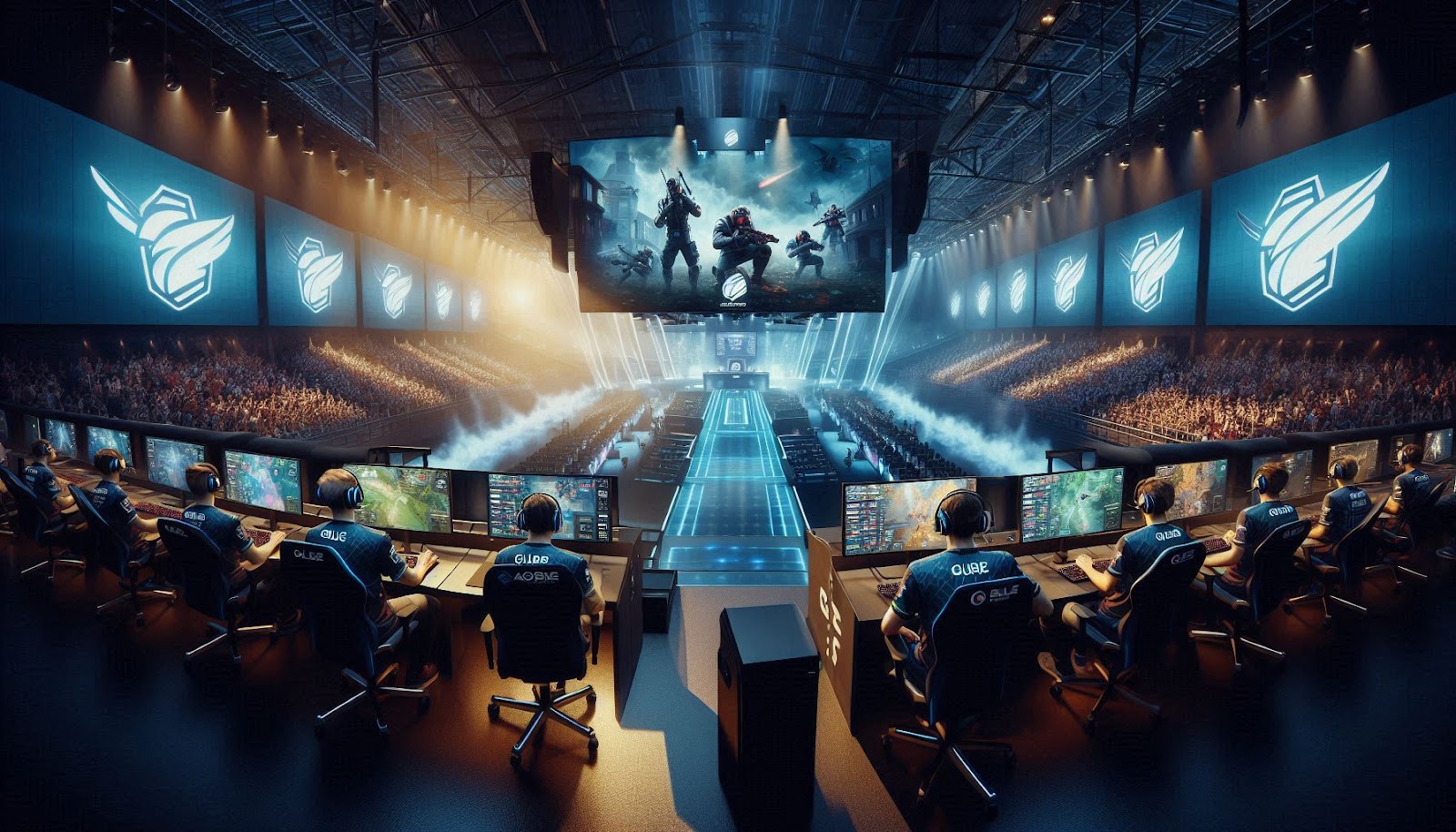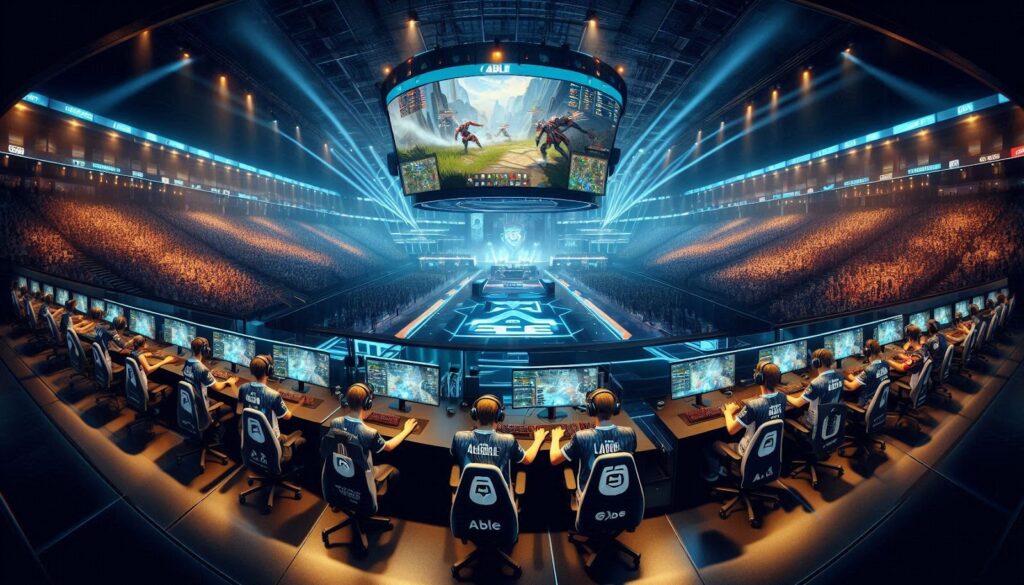Building the Digital Competitive Arena
The United Arab Emirates has emerged as a pioneering force in adapting real estate infrastructure to meet the demanding requirements of professional gaming. Dubai’s skyline now features purpose-built esports facilities that rival traditional sports venues in both scale and sophistication. These architectural marvels incorporate cutting-edge technology infrastructure, including high-capacity fiber optic networks and redundant power systems essential for uninterrupted competitive gameplay.
Property developers across Abu Dhabi and Dubai are revolutionizing commercial spaces by integrating dedicated gaming floors within existing developments. These innovative areas feature specialized acoustic treatments, climate control systems optimized for hardware performance, and modular staging areas that can transform from training grounds to tournament venues within hours. The attention to technical detail extends to specialized lighting systems designed to reduce screen glare while maintaining optimal broadcast conditions.
The integration of esports infrastructure has catalyzed a new wave of mixed-use development projects specifically tailored to gaming culture. These complexes combine competitive gaming spaces with retail outlets, themed restaurants, and social areas that cater to both players and spectators. The architectural design prioritizes the flow of foot traffic during major events while maintaining comfortable viewing angles for both live audiences and broadcasting requirements.
Real estate investors are particularly drawn to the scalability of esports venues, which can host everything from weekly amateur tournaments to international championships. This versatility has led to the development of convertible spaces that feature retractable seating, modular stage systems, and adaptable broadcasting infrastructure. The focus on flexibility ensures these properties maintain high occupancy rates through diverse event programming.
Technical Infrastructure Revolution
The backbone of UAE’s esports real estate development lies in its sophisticated technical infrastructure implementation. Property developers are investing heavily in dedicated power grids with multiple redundancy layers to ensure uninterrupted tournament play. These systems include specialized UPS configurations and backup generators designed specifically for gaming hardware requirements.
Network infrastructure within these facilities represents a quantum leap in connectivity solutions. Buildings are equipped with multiple fiber optic backbones, redundant internet service providers, and specialized networking hardware that minimizes latency for competitive play. The implementation of edge computing solutions within these facilities ensures optimal performance for both players and spectators.
Climate control systems in these venues incorporate precision cooling solutions typically found in data centers. These systems maintain optimal temperature and humidity levels for both electronic equipment and human comfort, with separate zones for gaming areas, audience spaces, and broadcasting facilities. The HVAC design accounts for the unique heat generation patterns of gaming setups and high-density crowds during events.
Developers have implemented advanced building management systems that monitor and control every aspect of the technical infrastructure. These systems utilize AI-driven predictive maintenance protocols to prevent technical issues before they impact events. Real-time monitoring of power consumption, temperature variations, and network performance ensures optimal conditions are maintained throughout the facility.
Revenue Generation and Investment Models
UAE’s real estate sector has developed innovative financial models to monetize esports infrastructure investments. The primary revenue streams extend beyond traditional property leasing to include event hosting fees, broadcasting rights, and partnerships with gaming publishers. These diverse income sources have attracted institutional investors who recognize the long-term growth potential of the esports real estate sector.
Property developers have created flexible leasing structures that accommodate both permanent tenants and temporary event organizers. These arrangements include revenue-sharing models based on event attendance, broadcast viewership, and merchandise sales. The ability to generate multiple revenue streams from a single property has significantly improved the return on investment calculations for these specialized developments.
Corporate partnerships play a crucial role in the financial ecosystem of esports facilities. Technology companies, gaming hardware manufacturers, and entertainment brands invest in naming rights, branded spaces, and permanent marketing presence within these venues. These long-term partnerships provide stable revenue streams that support ongoing infrastructure maintenance and upgrades.
Investment in esports real estate has attracted international capital through innovative financing structures. Real estate investment trusts (REITs) specializing in gaming infrastructure have emerged, offering investors exposure to this growing sector while maintaining liquidity. These investment vehicles have facilitated larger-scale developments and accelerated the expansion of esports infrastructure across the UAE.
Training and Development Facilities
Professional esports organizations require specialized training facilities that combine gaming infrastructure with athlete development resources. UAE’s real estate sector has responded by creating dedicated esports academies that feature high-performance practice rooms, physical conditioning areas, and mental health support spaces. These facilities integrate sports science principles with gaming-specific requirements.
The design of training facilities prioritizes player development through the integration of performance analysis technologies. These spaces feature dedicated replay rooms equipped with multiple display systems for tactical review sessions. Advanced analytics systems track player performance metrics and provide real-time feedback during practice sessions. The facilities also include specialized areas for streaming and content creation, enabling teams to build their brand presence.
Recovery and wellness areas within these training complexes reflect the evolving understanding of esports athlete requirements. These spaces include meditation rooms, physical therapy areas, and ergonomic assessment facilities. The integration of health and wellness infrastructure acknowledges the physical demands of professional gaming and supports player longevity.
Educational components within training facilities support the development of next-generation talent. Classroom spaces equipped with interactive learning technologies facilitate tactical instruction and game theory education. These areas also serve as incubators for emerging players, providing them with access to professional-grade equipment and coaching resources.
Broadcasting and Production Integration
The integration of broadcasting infrastructure represents a significant portion of esports real estate development in the UAE. Properties feature purpose-built production studios equipped with state-of-the-art broadcasting equipment, including robotic camera systems, dynamic lighting rigs, and professional-grade audio solutions. These facilities enable high-quality content production for both live events and recorded programming.
Control rooms within these venues incorporate redundant systems for stream management, replay generation, and graphics insertion. The technical infrastructure supports multiple broadcast formats simultaneously, allowing content distribution across various platforms and regions. Advanced audio systems feature acoustic treatment and specialized mixing capabilities designed specifically for esports commentary and game audio balance.
Network operations centers (NOCs) within these facilities manage the complex data requirements of modern esports broadcasting. These centers coordinate multiple video feeds, player communications, and audience interaction systems. The integration of cloud-based production tools enables remote collaboration with production teams worldwide, expanding the reach of UAE-based events.
Storage and media management systems within broadcasting facilities handle the massive data requirements of modern esports production. These systems include high-speed storage arrays, automated backup solutions, and content distribution networks. The infrastructure supports rapid content turnaround for highlights, social media distribution, and video-on-demand services.
Retail and Entertainment Integration
Strategic placement of retail spaces within esports venues creates additional revenue streams while enhancing the visitor experience. These areas feature gaming-themed stores, hardware demonstration zones, and interactive brand experiences. The retail strategy focuses on creating immersive shopping environments that complement the gaming atmosphere while maximizing per-visitor revenue.
Key amenities that support extended visitor engagement include:
- Premium food and beverage outlets featuring gaming-themed menus
- Interactive gaming lounges for casual play and social networking
- Merchandise shops offering exclusive event-specific products
- Technology showcase areas featuring the latest gaming innovations
Entertainment zones within these complexes extend beyond competitive gaming to include virtual reality experiences, simulator rides, and interactive installations. These attractions maintain visitor interest during non-event periods and appeal to a broader demographic. The integration of diverse entertainment options ensures consistent foot traffic and revenue generation throughout the year.
Social spaces within these developments facilitate community building and networking opportunities. These areas include co-working spaces for gaming professionals, meeting rooms for team activities, and casual gaming zones for community events. The creation of these social hubs strengthens the ecosystem around competitive gaming while providing additional value for property tenants.




